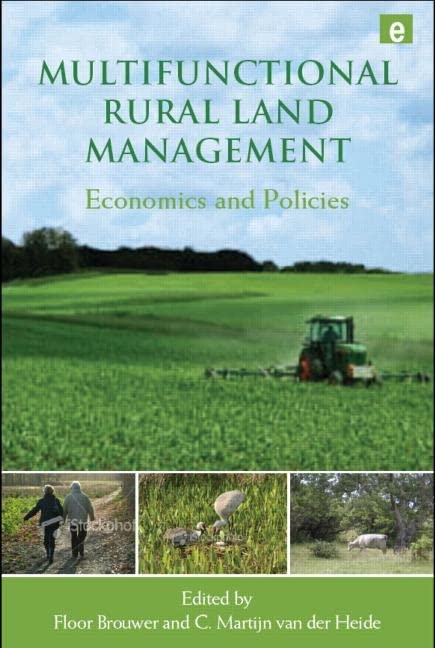Multifunctional Rural Land Management: Economics and Policies
Multifunctional Rural Land Management: Economics and Policies is backordered and will ship as soon as it is back in stock.
Couldn't load pickup availability
Genuine Products Guarantee
Genuine Products Guarantee
We guarantee 100% genuine products, and if proven otherwise, we will compensate you with 10 times the product's cost.
Delivery and Shipping
Delivery and Shipping
Products are generally ready for dispatch within 1 day and typically reach you in 3 to 5 days.
Book Details:
• Author: van der Heide, C. Martijn
• Publisher: Taylor & Francis Ltd
• Edition: 1st Edition
• Binding: Hardcover
• Format: Illustrated
• Number of Pages: 384
• ISBN: 9781844075775
• Release Date: 31st March 2009
• Languages: English
• Package Dimensions: 9.3 x 6.3 x 1.4 inches
About the Book:
The increasing demand for rural land and its natural resources is giving rise to competition and conflicts. Farmers, nature conservationists, rural residents, and tourists all vie for the same space, especially in densely populated regions where agriculture, recreation, urban growth, and infrastructure development continuously pressure rural areas. As land is a finite resource, spatial policies that increase land allocated to one use often reduce land available for other purposes.
In this context, the concept of multi-purpose land use—often referred to as "multifunctionality"—becomes essential. This volume delves into sustainable management strategies that support the multiple functions of agriculture and natural resources in rural areas. It explores how rural economies and policies can balance and address these competing demands, offering practical solutions for land use and management.
Drawing from case studies across Europe, North America, and developing countries, the book illustrates how multifunctional land use can be implemented effectively. It provides vital insights into how rural communities can navigate the complex dynamics of land use, ensuring that agricultural and natural resource-based activities contribute to the long-term sustainability of rural economies.





